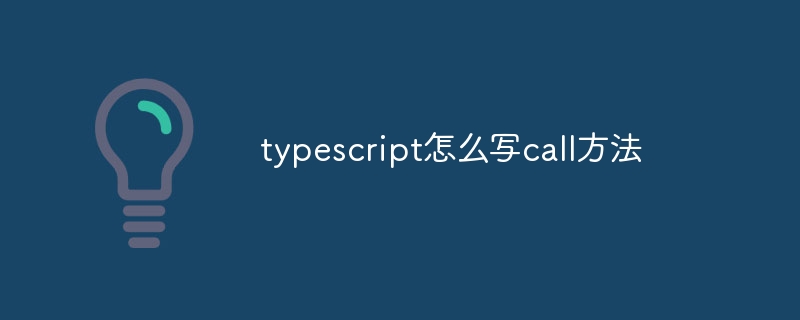typescript 中的 call() 方法用于将函数或方法绑定到特定对象,并使用该对象作为函数的 this 参数进行调用。步骤如下:定义函数或方法。使用 obj.funcname.call(context, arg1, arg2, …) 语法调用 call() 方法,其中 obj 是要绑定的对象,funcname 是要调用的函数或方法名称,context 是要作为 this 参数的对象,而 arg1, arg2, … 是要传递给函数的参数。typescript 会自动将 this 参

如何使用 TypeScript 编写 call 方法
回答:
TypeScript 中的 call() 方法可以将函数或方法绑定到特定对象,并使用该对象作为函数的 this 参数进行调用。
详细步骤:
- 定义函数或方法: 首先,定义需要绑定的函数或方法。
-
使用 call() 方法: 使用 obj.funcName.call(context, arg1, arg2, …) 语法,其中:
- obj 是要绑定的对象。
- funcName 是要调用的函数或方法名称。
- context 是要作为 this 参数的对象。
- arg1, arg2, … 是要传递给函数的参数。
-
示例: 假设有一个 Person 对象,里面有一个 getName 方法:
class Person { name: string; constructor(name: string) { this.name = name; } getName() { return this.name; } }登录后复制要使用 call() 方法将 getName 方法绑定到另一个对象,可以这样写:
const otherObject = { name: "John" }; const getNameFn = Person.prototype.getName; const fullName = getNameFn.call(otherObject); // "John"登录后复制 - 注意: 只能绑定不带 this 参数的函数或方法。 TypeScript 会自动将 this 参数绑定到 context 对象。
- 可选参数: call() 方法还可以接受一个可选的第二个参数,它是一个可选的工厂函数,用于在调用函数之前创建 this 上下文对象的新实例。







